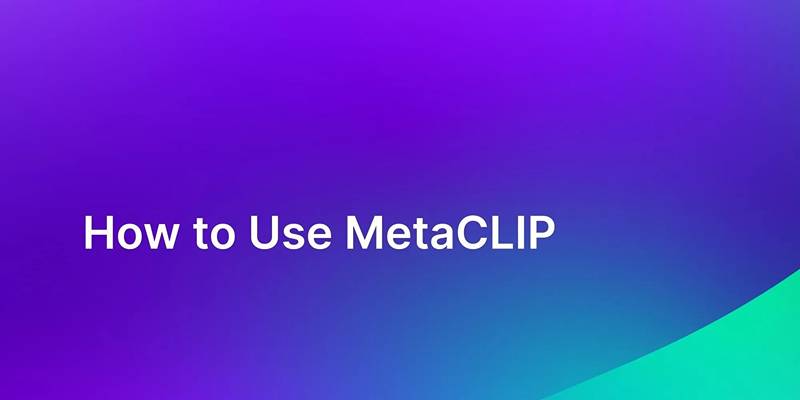You write something. You hit publish. But the clicks never come. It’s a quiet kind of frustration—the kind that makes you wonder if anyone even noticed. You check your stats. Impressions look fine, but no one’s clicking. That’s when it hits you: your click-through rate (CTR) needs attention.
You’re not alone. Writers and marketers everywhere face this issue. Often, the solution starts with the first words your audience sees—titles, descriptions, previews. That’s where ChatGPT steps in. It’s not about creating robotic content—it’s about helping you connect better. This article explores how to use ChatGPT to improve CTR with clarity, tone, and purpose.
How ChatGPT Helps Improve Click-Through Rates?
At its core, a click-through rate is simple: it’s the number of people who saw a link and decided it was worth clicking. But increasing that number isn’t simple. It’s tied to a blend of psychology, word choice, structure, and timing. The first place where ChatGPT makes a difference is by helping you find the exact words that match your audience’s intent.
Start with headlines. That’s your handshake, your opening move. ChatGPT is trained on massive amounts of data, which means it can mimic patterns that have worked across different fields. But don’t just take whatever headline it gives you. Use it as a rough draft. Edit it. Tweak it. Strip out anything that sounds too polished or cliché. ChatGPT might give you five suggestions, but only one will feel right. Use your judgment to choose what fits.
Descriptions come next. These are the sentences that show up under your headline in a search engine or email preview. If your headline is the hook, the description is the bait. It has to confirm that, yes, this content is useful, and yes, it's worth clicking right now. Ask ChatGPT to write descriptions based on different emotional angles—urgency, curiosity, and empathy. Keep what works. Throw out the rest.
Then there's the metagame—literally. Your meta title and description affect how your content shows up in search. ChatGPT can write versions that are keyword-rich without sounding like spam. Again, don't just copy and paste. Rephrase things until they sound like something you would say. Think of ChatGPT as a conversation partner that helps you sharpen your thoughts, not as a ghostwriter.
One underrated trick? Use ChatGPT to simulate different audience types. Ask it how a college student would respond to your title. Or how a parent might interpret your message. These prompts can surface blind spots in your phrasing or tone that you wouldn’t catch on your own.
And finally, it's not just about writing better. ChatGPT can help you test faster. Instead of trying one headline and waiting a week to see results, you can generate five solid options in ten minutes and rotate them through A/B tests. It's speed and scale, but it's under your control.
Balancing Authenticity with Optimization
There’s a trap that’s easy to fall into with AI: content that’s technically good but emotionally flat. It checks all the boxes but misses the point. You want to avoid that. The goal isn’t just better CTR—it’s better connection. That means your content has to sound like a person wrote it. A real person, not a corporate echo chamber.

So, how do you keep it real? First, resist the urge to polish things too much. People don't trust perfection. Use contractions. Break the occasional grammar rule. Talk like you talk. If ChatGPT gives you a sentence that sounds too smooth, rough it up a little. It’ll feel more natural.
Second, be specific. Vague copy kills clicks. Instead of “This will change your life,” say what it actually does. “Save three hours every week by automating your scheduling.” That’s something someone might want. ChatGPT is good at finding general patterns, but it needs direction to get specific. Feed it details and examples from your world.
Third, mix logic with emotion. Data alone won’t earn a click. Neither will pure hype. ChatGPT can help you find that middle ground—phrases that are persuasive but grounded. Ask it to explain your topic in simple terms, like you’re talking to a friend. That prompt alone can rewrite your tone in powerful ways.
Finally, lean into your own perspective. ChatGPT doesn't have lived experience—you do. Use it to amplify your voice, not replace it. The content that works best is the content that feels most human. If you're honest in your writing, your audience will notice. And that honesty, more than anything else, gets people to click.
The Long Game: Testing, Tweaking, and Staying Curious
Improving your click-through rate with ChatGPT isn’t a one-time fix—it’s an ongoing process. You write, test, tweak, and learn. Every headline teaches you something new about your audience. Every meta description sharpens your instincts.

The advantage of using ChatGPT is speed. You can brainstorm ideas, test variations, and fine-tune without starting from scratch each time. It helps you move faster while staying creative and in control.
But tools evolve, algorithms shift, and what works now might not work next week. That's why staying curious matters. Use ChatGPT to explore different tones, ask odd questions, and even write from different perspectives. It keeps your content fresh and relatable.
Still, remember—clicks aren't the end goal. They're the start of a connection. Real content makes people feel seen, informed, or understood. That's how trust grows. And trust is what makes someone not just click but return. ChatGPT helps you get that first click—but what you do with it is what really counts.
Conclusion
Click-through rates improve when your content sounds real, not robotic. ChatGPT gives you speed and structure, but your human voice brings the spark. Use it to shape headlines, refine meta descriptions, and test what connects—but keep control. Stay honest, specific, and grounded in your message. When your writing feels alive and speaks directly to people, they respond. The goal isn’t just more clicks—it’s meaningful ones. Done right, ChatGPT becomes a tool for clarity, not noise. Use it wisely, and your content will stand out where it matters most.











